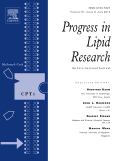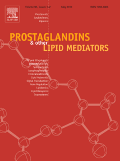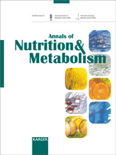
Journal of Clinical Lipidology
Scope & Guideline
Unveiling the complexities of lipid metabolism.
Introduction
Aims and Scopes
- Lipid Disorders and Genetic Factors:
The journal emphasizes research on genetic predispositions to lipid disorders, particularly familial hypercholesterolemia, dyslipidemia, and related metabolic syndromes. This includes studies on genetic mutations, their phenotypic expressions, and implications for diagnostics and treatment. - Clinical Management of Lipid Disorders:
A significant focus is placed on the clinical management of patients with lipid disorders, including the effectiveness of various pharmacotherapies, dietary interventions, and lifestyle modifications aimed at reducing cardiovascular risk. - Innovative Therapeutic Approaches:
The journal highlights novel therapeutic strategies, such as PCSK9 inhibitors, antisense oligonucleotides, and other lipid-lowering agents, along with their clinical outcomes and safety profiles. - Epidemiology and Public Health:
Research addressing the epidemiology of lipid disorders, their prevalence in different populations, and the impact of public health initiatives on lipid management and cardiovascular disease prevention is a key area of interest. - Implementation Science in Lipidology:
The journal explores the application of implementation science to improve lipid screening, diagnosis, and management protocols within clinical settings, enhancing patient outcomes and healthcare delivery.
Trending and Emerging
- Familial Hypercholesterolemia and Genetic Testing:
Research on familial hypercholesterolemia, including genetic testing and screening guidelines, has surged. This reflects a growing recognition of the importance of early diagnosis and management of genetically predisposed individuals to prevent cardiovascular events. - Lipoprotein(a) and Cardiovascular Risk:
There is an increasing focus on lipoprotein(a) as an independent risk factor for cardiovascular disease, with studies investigating its measurement, clinical implications, and management strategies, indicating a significant shift in understanding lipid-related risks. - Implementation of Novel Therapies:
The journal is trending towards studies evaluating the real-world effectiveness and safety of novel lipid-lowering therapies, particularly PCSK9 inhibitors and RNA-based treatments, as they become more integrated into clinical practice. - Diversity and Disparities in Lipid Management:
Emerging themes include the examination of disparities in access to lipid management therapies across different populations, including racial, ethnic, and socioeconomic factors that influence treatment outcomes. - Lipidomics and Precision Medicine:
Research integrating lipidomics into clinical practice is gaining traction, focusing on personalized approaches to lipid management based on individual lipid profiles and genetic backgrounds, reflecting a move towards precision medicine in lipidology.
Declining or Waning
- Traditional Dietary Approaches:
There is a noticeable decline in studies focusing on traditional dietary approaches to managing dyslipidemia, such as low-fat diets, as newer research emphasizes the role of specific dietary components like omega-3 fatty acids and the Mediterranean diet. - Basic Lipid Biochemistry Studies:
Research centered solely on basic lipid biochemistry without clinical implications is becoming less prevalent. The journal is now favoring studies that translate biochemical findings into clinical practice or patient outcomes. - Historical Case Studies:
The frequency of historical case studies documenting rare lipid disorders is decreasing, possibly due to a shift towards more contemporary clinical trials and cohort studies that provide more relevant data for current practices. - Single-Center Studies:
There is a waning interest in single-center studies that do not incorporate broader epidemiological data. The journal is increasingly prioritizing multi-center or population-based studies that provide more comprehensive insights. - Non-Pharmacological Interventions:
Research focusing on non-pharmacological interventions alone, such as exercise or lifestyle changes without pharmacotherapy, appears to be less frequent, as there is a stronger emphasis on integrated approaches combining medication and lifestyle modifications.
Similar Journals

LIPIDS
Connecting lipid research to real-world applications.LIPIDS is a renowned peer-reviewed journal published by Wiley, dedicated to the field of lipid research, encompassing biochemistry, molecular biology, and organic chemistry. With its roots dating back to 1966 and a commitment to advancing knowledge until 2024, this journal serves as a vital platform for sharing significant findings in lipid biochemistry and its applications in health and disease. Although it currently does not offer Open Access options, it maintains a respectable standing with a Q3 ranking in Biochemistry and Organic Chemistry, and a Q4 ranking in Cell Biology based on the 2023 category quartiles. Additionally, its Scopus rankings reflect a solid position within the organic chemistry and biochemistry subfields. Published from Germany, LIPIDS caters to researchers, professionals, and students eager to explore the roles of lipids in biological processes and innovatory applications in various scientific disciplines.

AMERICAN JOURNAL OF CLINICAL NUTRITION
Fostering collaboration for a healthier tomorrow.The American Journal of Clinical Nutrition, published by Elsevier Science Inc, stands as a premier academic platform dedicated to advancing knowledge in the fields of clinical nutrition and dietary science. With its roots tracing back to 1952, this prestigious journal boasts rigorous peer-reviewed research, providing vital insights and evidence-based findings that cater to the ever-evolving landscape of nutrition and health care. Affiliated with a strong reputation, the journal holds an impressive impact factor and is ranked in the top quartile (Q1) in both Nutrition and Dietetics and Medicine (miscellaneous), underscoring its significance in the academic community. With current Scopus rankings placing it #7 in Nursing and Nutrition and Dietetics and #20 in Medicine, it serves as an essential resource for researchers and practitioners seeking to stay at the forefront of clinical nutritional science. This journal not only disseminates groundbreaking research but also fosters collaborations among scholars, enhancing the clinical implications of nutrition practices globally. Access to the journal may vary, given its non-open access format; however, its contributions remain indispensable to professionals and students alike striving to deepen their understanding of clinical nutrition.

Metabolic Syndrome and Related Disorders
Fostering Dialogue on Metabolic Health InnovationsMetabolic Syndrome and Related Disorders is an esteemed journal published by MARY ANN LIEBERT, INC, focusing on the multifaceted aspects of metabolic syndrome, including its interaction with chronic diseases such as diabetes, cardiovascular conditions, and obesity. Since its inception in 2003, this journal has established itself as a vital resource for researchers, healthcare professionals, and students dedicated to advancing knowledge in the fields of endocrinology, internal medicine, and metabolic disorders. With an impact factor reflective of its academic significance, Metabolic Syndrome and Related Disorders is recognized within the Q2 and Q3 quartiles in its respective categories, solidifying its reputation among scientific and clinical communities. Although it does not currently offer open access options, the journal remains committed to disseminating high-quality research and reviews that foster innovative solutions and improve patient outcomes. The journal's gradual convergence towards 2024 presents an exciting opportunity for continued exploration and dialogue about metabolic-related health challenges.

PROGRESS IN LIPID RESEARCH
Advancing the Frontiers of Lipid ScienceProgress in Lipid Research, published by Pergamon-Elsevier Science Ltd, is a leading scientific journal dedicated to advancing the understanding of lipid biology and its implications for human health. With an impressive impact factor, it ranks in the Q1 quartile in both Biochemistry and Cell Biology as of 2023, reflecting its vital role in disseminating high-quality research. Covering a wide scope of topics from lipid metabolism to cell signaling pathways, the journal serves as a key resource for researchers, professionals, and students alike, striving to elucidate the complex functions of lipids in various biological systems. With publication converging since 1978 and extending to 2024, Progress in Lipid Research continues to provide innovative insights and foster collaboration within the scientific community, solidifying its reputation as an essential platform for lipid research.

Clinica e Investigacion en Arteriosclerosis
Pioneering research that shapes the future of cardiology.Clinica e Investigacion en Arteriosclerosis is a premier academic journal dedicated to the field of cardiology and cardiovascular medicine, published by ELSEVIER. With its ISSN 0214-9168 and E-ISSN 1578-1879, the journal aims to disseminate high-quality research and innovations in the understanding and treatment of arterial diseases, contributing significantly to both clinical practices and pharmacological advancements. Established in 2007 and continuing into 2024, the journal has garnered recognition with a notable Q3 categorization in both Cardiology and Cardiovascular Medicine and Pharmacology (medical) for 2023, reflecting its impact in the academic community. Researchers and healthcare professionals utilizing this journal will find a diverse range of articles exploring novel therapeutic strategies and epidemiological data, making it an essential resource for advancing knowledge and practice in cardiovascular health. While it does not operate as an open-access journal, the findings published in Clinica e Investigacion en Arteriosclerosis are pivotal for understanding current trends and future directions in cardiovascular research.

Journal of Diabetology
Advancing diabetes care through innovative research.The Journal of Diabetology, published by Wolters Kluwer Medknow Publications, is a premier platform dedicated to advancing the understanding and management of diabetes and related metabolic disorders. Since its inception in 2010, this Open Access journal has provided researchers and healthcare professionals with a wealth of knowledge through rigorous peer-reviewed articles that cover clinical research, epidemiology, and innovative treatment strategies. With an E-ISSN of 2078-7685 and a commitment to disseminating high-quality scientific work, the journal plays a pivotal role in contributing to the global discourse on diabetes care and prevention. Its dedication to accessibility enhances its impact on both established scholars and emerging researchers seeking to make meaningful contributions in the field. By fostering a collaborative environment, the Journal of Diabetology aims to bridge the gap between research and practical implementation, ultimately improving outcomes for individuals affected by diabetes.

PROSTAGLANDINS & OTHER LIPID MEDIATORS
Driving Discoveries in Prostaglandin BiologyPROSTAGLANDINS & OTHER LIPID MEDIATORS, published by Elsevier Science Inc, is a leading journal dedicated to the advancements in the field of lipid mediators, with a specific focus on prostaglandins and other bioactive lipids. This journal, indexed under ISSN 1098-8823 and E-ISSN 2212-196X, serves as a crucial platform for researchers and professionals to disseminate significant findings that span multiple disciplines, including Biochemistry, Cell Biology, Pharmacology, and Physiology. In the 2023 category quartiles, it has achieved commendable positions such as Q2 in Biochemistry and Q2 in Physiology, underscoring its importance and influence in these domains. Although it is not an open-access journal, it provides robust access options, enhancing the visibility of vital research. With its establishment in 1996, the journal continues its commitment to fostering innovative research until 2024, making it an essential resource for those involved in the dynamic realms of lipid biology and medical research.

Lipids in Health and Disease
Bridging the gap between lipid metabolism and clinical practice.Lipids in Health and Disease, published by BMC, stands as a leading open-access journal dedicated to advancing the understanding of lipid metabolism and its implications for health and disease. Since its inception in 2002, this journal has fostered accessibility to cutting-edge research, ensuring that knowledge in this vital field is disseminated widely to researchers, clinicians, and students worldwide. With a commendable Q1 ranking in multiple categories including Clinical Biochemistry and Endocrinology, Diabetes and Metabolism, it appeals to a diverse readership, positioning itself at the forefront of research in biochemistry and medicine. It boasts an impressive Scopus rank, where it excels in areas such as Endocrinology, Diabetes and Metabolism and Clinical Biochemistry, making it an essential resource for those looking to deepen their understanding of lipid biology and its clinical applications. Researchers can share and access findings that have significant implications for public health and disease prevention, emphasizing the journal's commitment to fostering innovation and collaboration in the scientific community.

ANNALS OF NUTRITION AND METABOLISM
Exploring the Interplay of Diet, Health, and DiseaseANNALS OF NUTRITION AND METABOLISM is a prestigious academic journal dedicated to advancing the fields of nutrition and metabolism, published by KARGER, a renowned publisher known for its commitment to high-quality research dissemination. Founded in 1959, this journal has established itself as a crucial resource for researchers and practitioners alike, spanning an extensive range of topics that highlight the interplay between diet, health, and disease. Currently seated in Q2 categorically both in Medicine (Miscellaneous) and Nutrition and Dietetics, the journal ranks impressively within the Scopus metrics, showcasing its relevance and impact—positioned at the 80th percentile in Medicine and the 71st percentile in Nutrition. Though not open access, the journal ensures broad accessibility through various academic databases. By focusing on innovative research findings and clinical insights, the ANNALS OF NUTRITION AND METABOLISM aims to foster a deeper understanding of nutritional science, making it an indispensable platform for academics, healthcare professionals, and students alike to enhance their knowledge and contribute to ongoing discussions in this vital field.

Nutrition and Metabolic Insights
Elevating the discourse on metabolism and dietary practices.Nutrition and Metabolic Insights is a distinguished open-access journal published by SAGE Publications Ltd, dedicated to advancing the fields of nutrition, metabolic processes, and dietary sciences. Since its inception in 2008, this journal has carved a niche for itself within the academic community, offering a platform for rigorous research and innovative findings. With a focus on multidisciplinary approaches, it publishes articles that explore vital aspects of Endocrinology, Diabetes and Metabolism, Food Science, and Nutrition and Dietetics, earning recognition with a 2023 Q2 ranking in Food Science and Q3 rankings in other critical categories. Researchers and professionals can access cutting-edge research that not only contributes to academic discourse but also informs clinical practice and public health discussions. By facilitating the dissemination of knowledge, Nutrition and Metabolic Insights plays a crucial role in improving health outcomes worldwide, making it an essential resource for students, researchers, and health professionals alike.